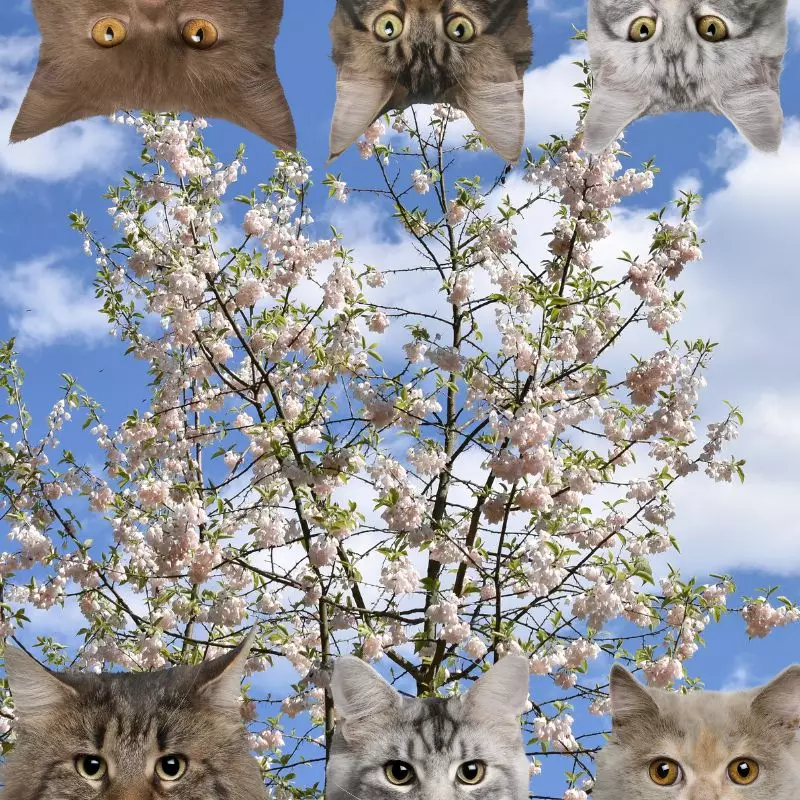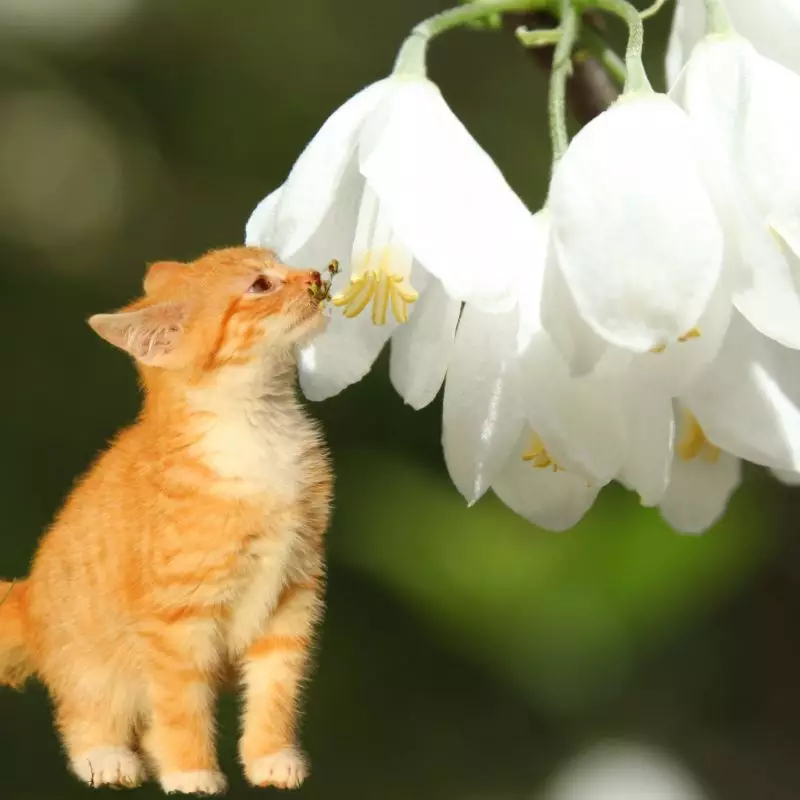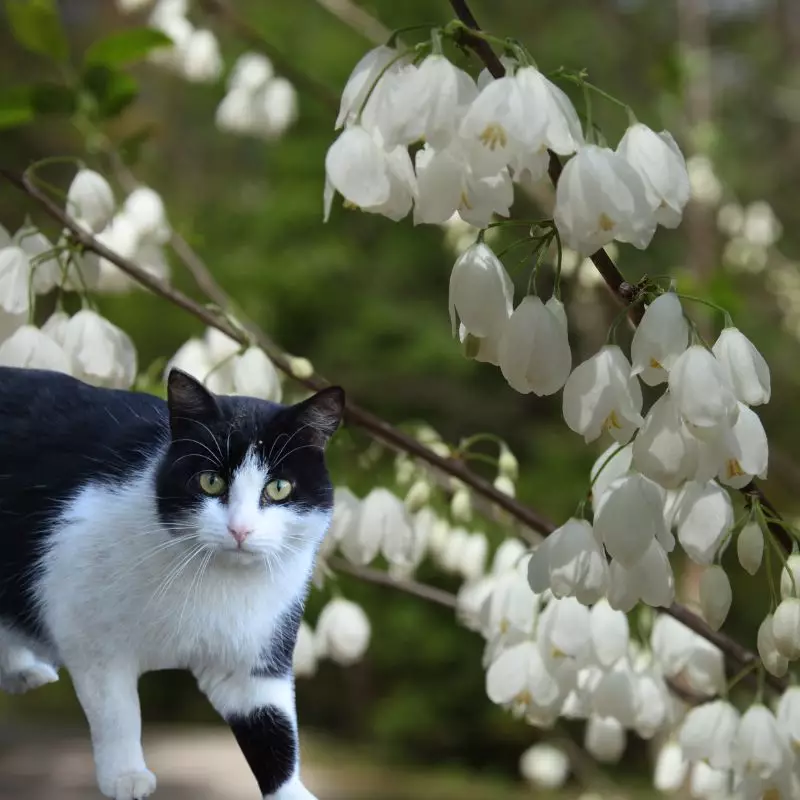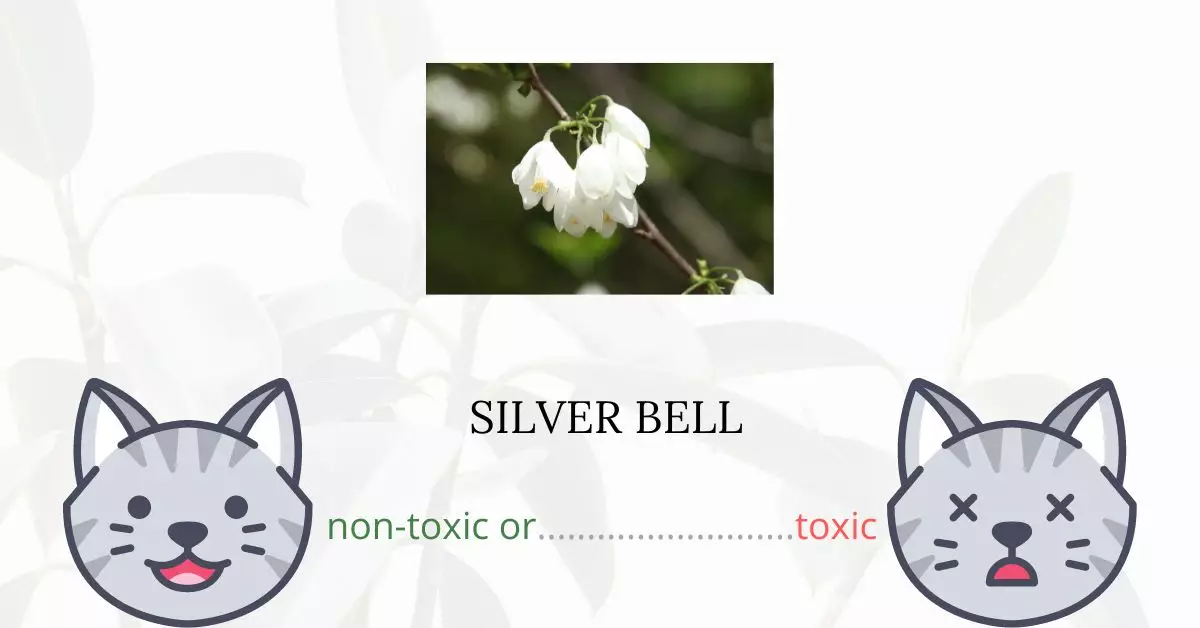The Silver Bell or Snowbell tree is not poisonous to cats. It is recognized by reputable organizations, including the American Society for the Prevention of Cruelty to Animals (ASPCA), as a non-toxic plant for cats, as well as for dogs and horses. Cats can safely interact with the Silver Bell plant, including touching, licking, or biting, as it doesn’t contain hazardous elements. Nevertheless, even if this tree is deemed safe, it is advisable not to let your cat consume parts of the Silver Bell or Snowbell tree extensively.
This article was written in collaboration with a team of experienced DVMs (doctors of veterinary medicine). Their invaluable insights and expertise ensure we provide accurate and up-to-date information on the potential risks associated with various plants, with a focus on Silver Bell in this instance. Additionally, our research includes referencing high-authority websites such as ASPCA and PetMD for comprehensive verification on every plant we discuss.
Can Cats Eat Silver Bell or Snowbell Tree?

It wouldn’t hurt your cat to have a small bite of a silver bell however it is not advisable for regular consumption. But, you must prevent them from eating excessive amounts as it may cause indigestion.
Generally, plants are not suitable to be included in a cat’s diet. Since cats are carnivorous, they do not have the capability to digest plant matter. As a result, they can have an upset stomach and show symptoms of vomiting and diarrhea. Once the plant particles are out of their system, the symptoms will gradually subside.
Even if the silver bell is safe for cats, you should also consider its growing conditions. There are plants that have traces of toxins from fertilizers and pesticides. If these toxins happen to reach your cats’ internal system, it can be dangerous to them.
What is Silver Bell or Snowbell Tree?

Silver bell is a US native flowering tree in the Styracaceae family that grows throughout the mountain regions of North Carolina and into upper Piedmont.
It can be cultivated as a shrub or a small understory tree. The tree seldom grows taller than 80 feet and grows big enough for commercial use only in the best locations. There are large shrubs with stunning, twisting trunks. The silver bell or snowball tree can live for up to 100 years and blooms when it is only a few years old.
Silver bell is known for its many other common names including Carolina Silverbell, Common Silverbell, Mountain Silverbell, Opossum wood, Shittimwood, and Snowbell tree. Scientifically, it is known as Halesia carolina.
Keeping Cats Away From Silver Bell or Snowbell Tree

Use a mini indoor greenhouse, a fun decorative birdcage, a beautiful glass cloche, or a cute wire plant cover to keep your cats away from your houseplants.
It will not only look nice, but it will also keep cats from knocking plants over, chewing on them, and digging (or pooping!) in the dirt.
Cats dislike the smell of citrus. To keep them from digging, place a piece of landscape fabric or burlap spritzed with citrus on the ground. You not only keep your cat away from your vegetation, but your house also smells great!
Another option is to cut slices of rind and arrange them around the plant pot. However, keep an eye on your cat to ensure that the scent isn’t causing them to avoid the room entirely.
Plants to Avoid For Your Cats
If you are a cat owner and unsure if the plants growing in your yard are harmful to your cats, check out this list of toxic plants for cats. You can also check our list of non-toxic plants for cats.





